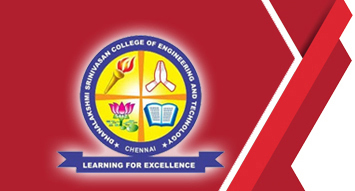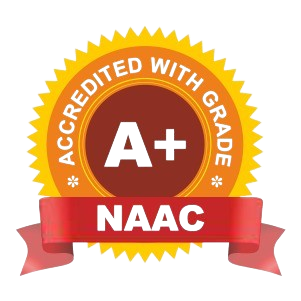Dhanalakshmi Srinivasan
College of Engineering and Technology
ECR, MAMALLAPURAM. CHENGALPATTU DISTRICT.
Approved by AICTE, NEW DELHI | Affiliated to Anna University, Chennai. ( Accredited by NAAC with "A+" Grade )
Recognized under section 2(f) & 12(B) of the UGC Act, 1956. Accredited by NBA for AERO,CSE,EEE,ECE,IT,MECH & MBA


